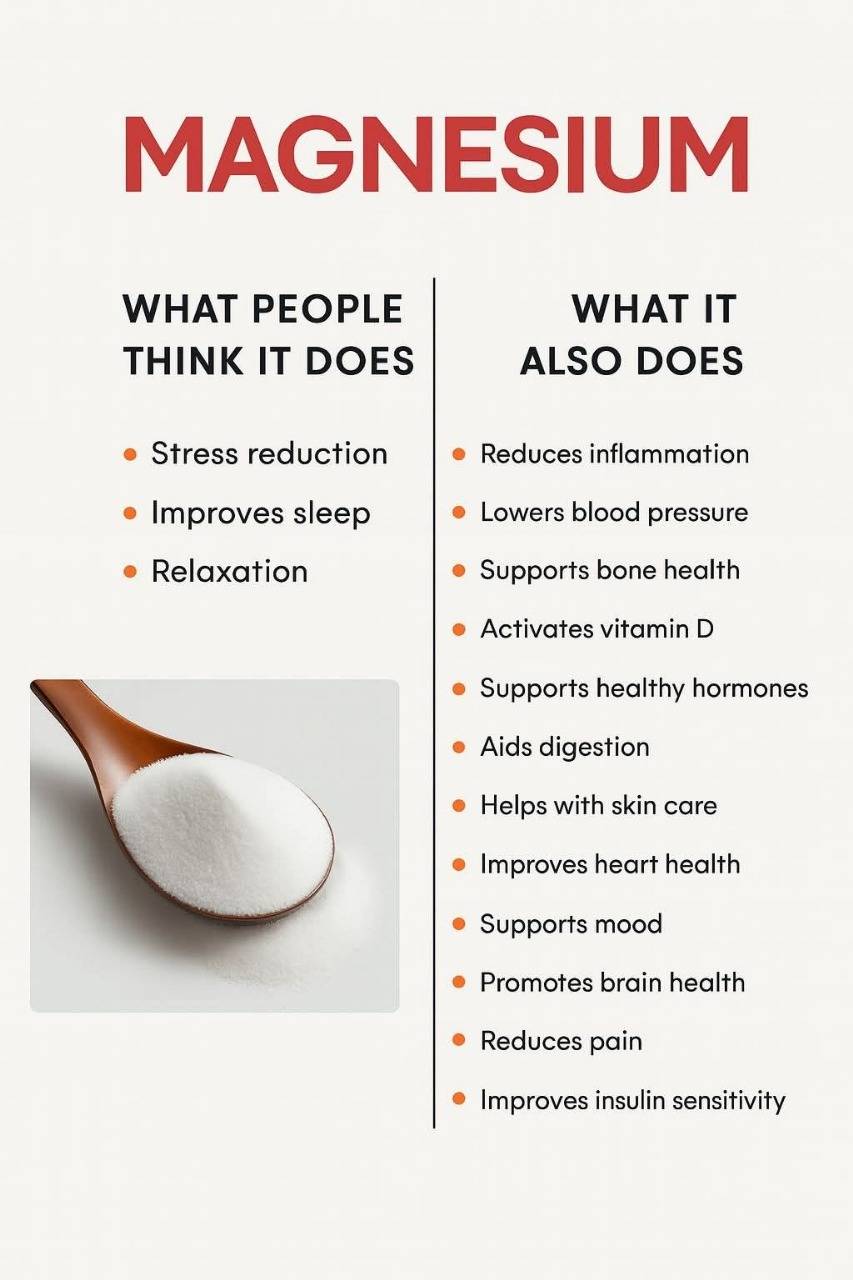5. Strengthens Bones
Calcium gets most of the credit for bone health, but magnesium is just as important. About 60% of the body’s magnesium is stored in bones, where it contributes to bone density and strength. Without enough magnesium, the calcium absorption in your body will also decrease.
Long-term deficiency has even been linked to osteoporosis, making magnesium just as essential as calcium for lifelong bone health.
6. Supports Energy ProductionSupports Energy Production
Every cell in your body needs magnesium to create ATP—the main energy molecule. Low magnesium often leads to fatigue, weakness, or low endurance. Ensuring enough magnesium in your diet helps keep your energy levels stable throughout the day.
Magnesium-rich foods are particularly important for athletes, as they help prevent energy dips during physical activity.
7. Balances Blood SugarFoods Rich in Magnesium
Magnesium improves insulin sensitivity, which helps regulate your blood sugar levels that people with higher magnesium intake have a lower risk of developing type 2 diabetes.
Some experts recommend magnesium-rich diets as part of managing prediabetes, since it helps the body process carbohydrates more efficiently.
ADVERTISEMENT

